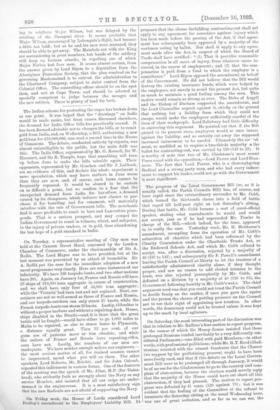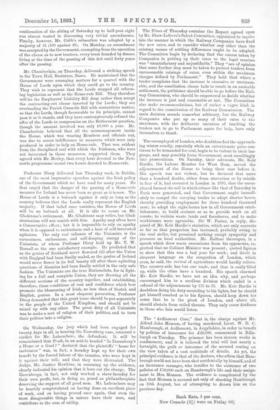On Saturday, the most interesting part of the discussion was
that in relation to Mr. Balfour's first motion to report progress, in the course of which Sir Henry James insisted that these prolonged Sessions tended inevitably to a very differently con- stituted Parliament,—one filled with paid Members,—in other words, with professional politicians; while Mr. R. T. Reed (Glad. stonian) retorted with the utmost frankness that the Closure (we suppose by the guillotining process) ought to have been more freely used, and that if this debate on the Local Govern- ment Bill were to be prolonged all through January, it would be of no use for the Gladstonia,ns to go to the country and com- plain of obstruction, because the electors would merely reply that the majority of the House could have ant short all this obstruction, if they had pleased. The motion to report pro- gress was defeated by 41 votes (120 against 79) ; but it was evident that the feeling of the Committee at the refusal to terminate the Saturday sitting at the usual Wednesday hour, was one of great irritation, and so far as we can see, the continuation of the sitting of Saturday up to half-past eight was almost wasted in discussing very trivial amendments. Finally, however, Mr. Cobb's subsection was adopted by a majority of 61 (109 against 48). On Monday, an amendment was accepted by the Government, exempting from the operation of the clause as to new trustees, every trust founded by donors living at the time of the passing of this Act until forty years after the passing.











































 Previous page
Previous page